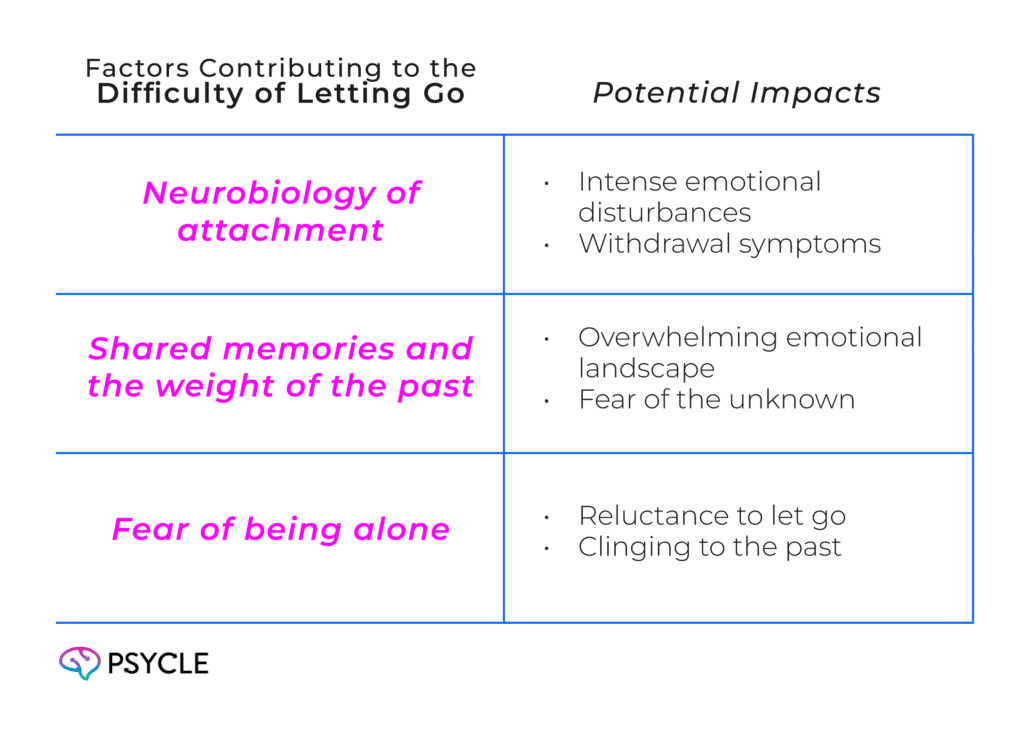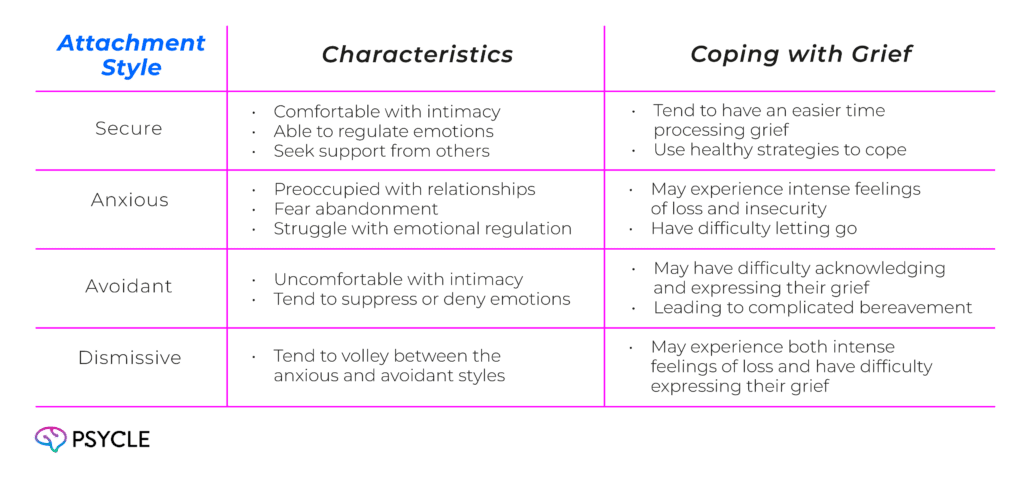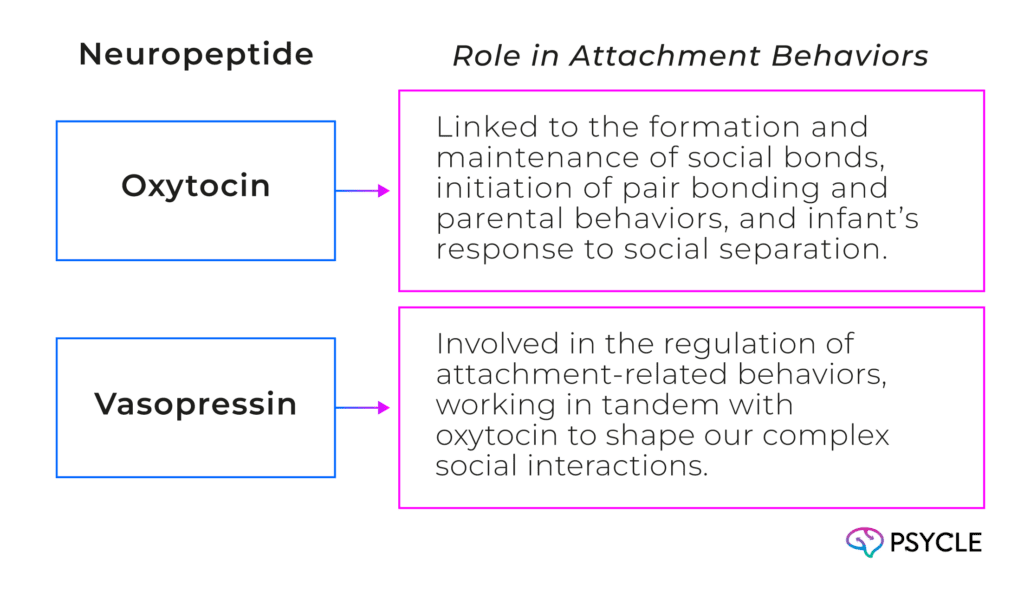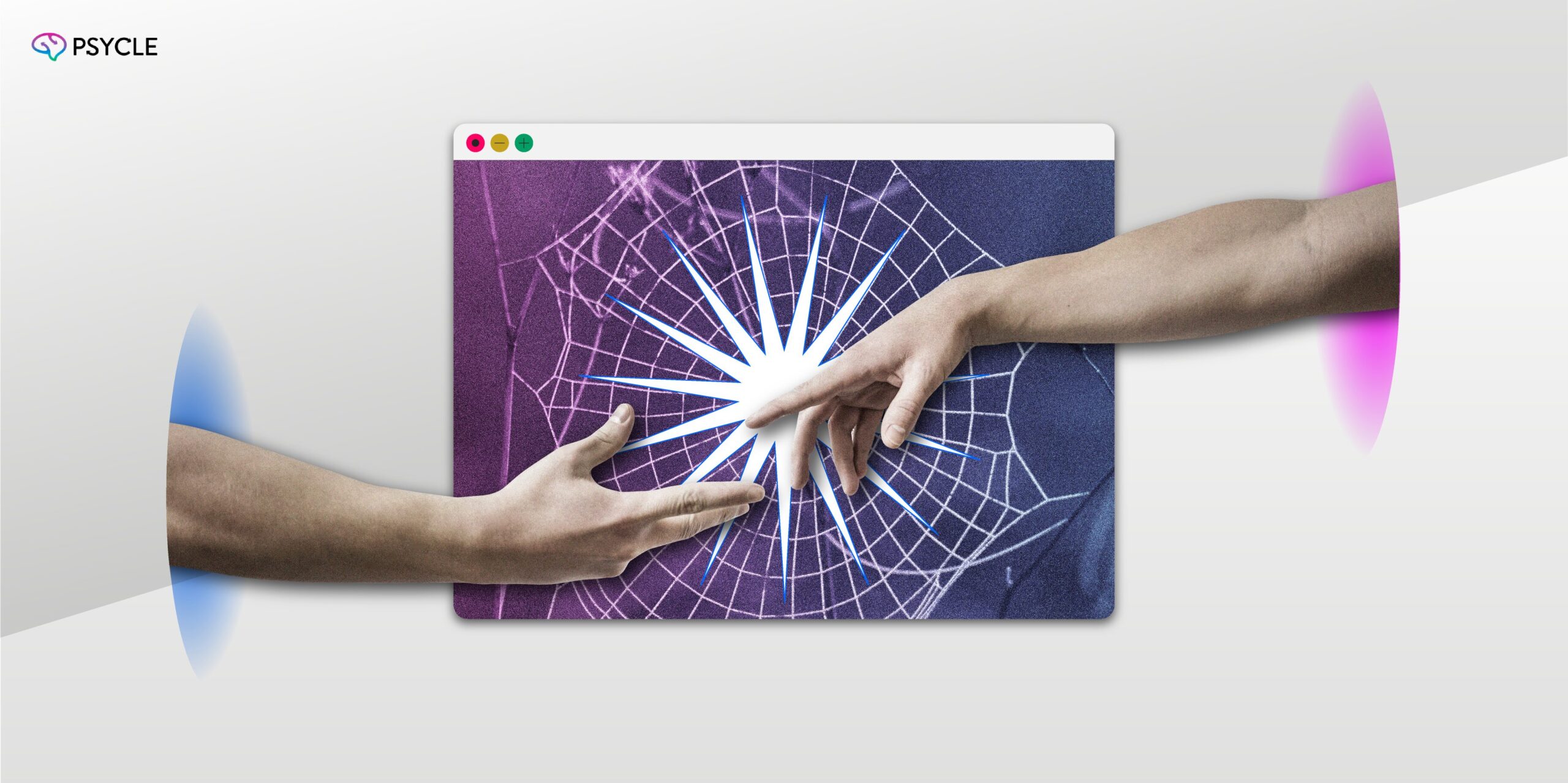Letting go of someone close, like a romantic partner, friend, or family member, is hard. Because we all want to be connected and attached, when these bonds break, we feel deep sadness, regret, and even failure.
This article will look into why it’s hard to move on. We’ll see what experts say and offer tips to help you through this tough time.
At the heart of the struggle is our attachment. Our brains release hormones like oxytocin and vasopressin in relationships. These hormones make us feel emotionally tied to others, making it hard to break free. Plus, memories we share and the fear of being alone make it harder to move on.
Key Takeaways
- Letting go is a complex emotional process influenced by the brain’s attachment mechanisms.
- Shared memories and the fear of being alone contribute to the difficulty of moving on.
- Attachment styles and personal experiences shape our ability to navigate loss and grief.
- Self-compassion, finding purpose, and engaging in self-care can aid the healing process.
- Seeking support and cultivating new perspectives can help individuals overcome the challenges of letting go.
Why is It Hard to Let Someone Go?
Letting go of someone we deeply care about is hard. The pain of grief, the bond we’ve formed, and the fear of being alone make it tough. These factors explain why it’s so hard to move on.
The neurobiology of attachment is key. When we bond with others, our brains release oxytocin and vasopressin. These hormones make us feel trust, empathy, and connection. Losing these bonds can cause strong emotional issues, like withdrawal symptoms, making it hard to let go and move on.
Shared memories and the past also matter a lot. The emotional landscape is full of reminders of our life with the person we’re grieving. It’s hard to deal with the loss of what was familiar and the fear of what’s unknown.

The fear of being alone also stops us from letting go. The idea of living without a loved one is scary, making us cling to the past. Understanding these emotional and psychological factors helps us find the courage to move forward.
The Role of Attachment Styles
How we form and maintain relationships deeply affects our ability to cope with loss. Our attachment styles, formed early, shape how we feel and act when we lose someone close. They influence our emotional and behavioral responses to grief and the end of a relationship.
Psychologists say there are four attachment styles: secure, anxious, avoidant, and disorganized. Those with a secure attachment style find it easier to deal with grief. They can manage their feelings well and get comfort from others.
But, those with anxious attachment styles might feel abandoned and insecure, making it hard to move on. Those with avoidant attachment can hide or deny their feelings, which can make grieving harder. And those with a dismissive attachment style may volley between both feelings of abandonment and denial.
Knowing your attachment style helps you understand the unique challenges you face when a relationship ends. It lets you find better ways to cope and approach relationships, grief, and loss in a healthier way.

The Neurobiology of Attachment
Understanding how attachment rewards social bonds is key. Research in neurobiology has shown the big role of oxytocin and vasopressin. These two neuropeptides are crucial for our social connections.
Understanding the Role of Oxytocin and Vasopressin
Oxytocin is called the “love hormone” because it helps form and keep social bonds. It’s key for starting pair bonds and caring for our young. Vasopressin also plays a part in attachment behaviors, working with oxytocin to shape how we interact with others.
Studies are now revealing how these pathways work at a cellular level. This gives us a better look at how our biology affects our attachments and relationships. By exploring the neurobiology of attachment, we learn more about what makes our close relationships meaningful.

The Weight of Shared Memories
Letting go of someone you care about is hard, especially when you think about the memories you shared. These memories are very important to you. They remind you of the strong bond you had.
Navigating the Emotional Landscape
After losing someone or ending a relationship, the memories can feel heavy. They can make you feel connected and bring back happy times. But, they can also make you sad and miss the person more.
Finding a way to deal with these memories is key to healing. You might want to make a memory box, tell stories to others, or do things that remind you of good times. This helps you honor the memories and move forward.
- Recognize the significance of your shared memories and the role they play in your healing process.
- Explore ways to memorialize and celebrate the positive aspects of your relationship, such as creating a photo album or writing a letter to your loved one.
- Seek support from family and friends who can help you navigate the emotional landscape and find healthy ways to process your grief and loss.
By honoring your memories and moving forward, you start to heal emotionally. This opens the door to new, meaningful relationships in the future.
The Fear of Being Alone
Ending a relationship can be scary, often because we fear being alone. This fear comes from our deep need for connection and company. Losing someone important can make us feel lost and scared about the future.
The grief and loss we feel can make us long for the security we had before. This fear can show up in many ways, like wanting to be around people all the time or finding it hard to enjoy being alone.
But, we shouldn’t let this fear stop us. By facing our emotional and psychological needs, we can become more independent and strong. This path includes:
- Learning about our attachment styles and how they affect our relationships.
- Being kind to ourselves and accepting the healing process.
- Finding ways to keep ourselves busy and give our lives meaning.
- Doing things we enjoy that help us feel good about who we are.
Getting over the fear of being alone takes time, but it’s key to moving on from grief and loss. By learning to enjoy our own company, we can find a stronger and more confident future.
Coping Strategies for Moving On
Moving on after a big loss is tough, but there are ways to help you heal. Using these tips daily can make it easier to deal with. They help you become more resilient and kind to yourself.
Embrace Mindfulness
Mindfulness is a strong tool for healing. Spend some quiet time each day focusing on your breath. This can lessen anxiety, make you more aware of your feelings, and bring peace.
Cultivate Self-Compassion
Be gentle with yourself during this hard time. Understand that your feelings of grief and loss are okay. Don’t judge or criticize yourself. Treat yourself with the kindness you’d give to a close friend.
Seek Social Support
Be around people who support and comfort you. Talking to friends and family can make you feel less alone and help you stay connected while you heal.
Engage in Meaningful Activities
Get into hobbies, volunteer, or activities that make you feel important. Doing these things can shift your focus and help you grow. It’s a way to let go and move forward.
Using these strategies can make the tough journey of grief and loss easier. Remember, healing takes time and care. With patience and self-care, you can find your way.
The Importance of Self-Care
Going through the process of letting go and moving on is tough and emotional. It’s key to focus on self-care to build strength and find ways to deal with grief, loss, and changes in relationships.
Keeping a healthy routine is a big part of self-care. This means getting enough sleep, eating well, and staying active. Having a regular schedule helps the mind and body stay strong during tough times of healing and self-reflection.
It’s also vital to look after your emotional and mental health. Getting help from professionals like therapists or counselors can be really helpful. They offer a safe place to talk about feelings, learn new ways to cope, and understand yourself better.
Doing things that make you happy and relaxed is also key. This could be enjoying a hobby, practicing mindfulness, or helping out in the community. These activities help you connect with your true self and find purpose during hard times.
By focusing on self-care, you can get the strength and tools needed to move on.
Finding Meaning and Purpose
When we lose someone close, finding new meaning and purpose can be hard. Yet, this journey can lead to personal growth and new paths in life. By looking at grief and loss in a new way, we can find chances for self-reflection and growth.
Letting go and moving forward is a time for deep thought. It lets us think about what matters most to us. By finding purpose, we start building a fulfilling life after a big loss.
Everyone’s journey to find meaning and purpose is different. Some turn to spiritual practices, while others find new passions in art, education, or helping others. The important thing is to be kind to ourselves and open to change.
Embracing what we learn from loss helps us find new purpose and value in life. This change not only helps us heal but also inspires others facing similar challenges.
Conclusion
Letting go of someone we’ve grown close to is hard. But, this journey can also lead to personal growth and change. By understanding and forgiving, accepting our attachment styles, and finding new meaning, we can move forward. We can start to see a future full of new chances.
Letting go isn’t about forgetting or saying the past wasn’t important. It’s about respecting those relationships while taking care of ourselves. As we say goodbye to the past, we welcome the future. In this future, love, relationships, and happiness can still grow.
FAQs
What are the Key Psychological and Emotional Factors That Contribute to the Challenge of Moving on After a Relationship Ends?
The main reasons it’s hard to move on include the science of attachment, the value of shared memories, and the fear of being alone. These factors make it tough to let go.
How Can the Fear of Being Alone Hinder the Process of Letting Go and Moving On?
Fear of being alone often stops people from moving on. The article looks at why this fear happens. It offers ways to overcome it and build confidence in yourself.
Why Is Engaging in Self-Care Practices Crucial for Individuals Going Through the Process of Letting Go and Moving On?
Taking care of yourself is key. It means keeping a healthy routine, getting help if you need it, and doing things that make you feel good. This helps you deal with loss and start anew.
How Can the Experience of Loss Become an Opportunity for Personal Growth and the Discovery of New Meaning and Purpose?
Loss can spark self-reflection and growth. The article suggests using this time to think about what you want and find new goals. This can help you start a fulfilling life after a big change.
Sources
- https://www.attachmentproject.com/blog/four-attachment-styles/
- https://www.sciencedirect.com/science/article/abs/pii/S0091302209000296
- https://guilfordjournals.com/doi/abs/10.1521/pdps.2017.45.4.499
- https://my.clevelandclinic.org/health/diseases/22578-autophobia-monophobia-fear-of-being-alone
- https://www.verywellmind.com/self-care-strategies-overall-stress-reduction-3144729
- https://onlinelibrary.wiley.com/doi/full/10.1111/famp.12914

